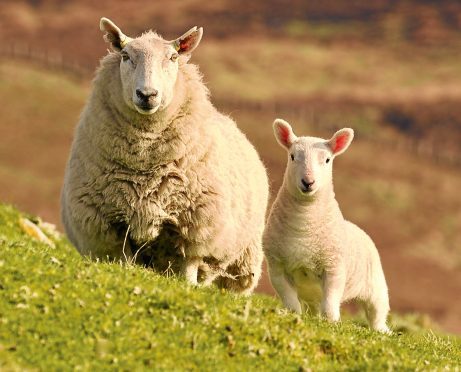Scotland’s farming union is calling on the Scottish government to rebase the Less Favoured Area Support Scheme (LFA) to create a fairer system for those keeping beef cattle and sheep in uplands and islands.
NFU Scotland (NFUS) has requested that the £65.5 million of precious funding is better targeted and is refocussed on activity.
The plea comes after the Scottish government announced at the union’s AGM in February that the scheme would run until 2026 but with potential changes in 2025, such as new conditions on delivery.
It is currently run on historic livestock numbers based on cattle and sheep being kept in 2009 however, over the past 13 years, many agricultural businesses have restructured.
NFUS has long argued that some will have increased eligible livestock numbers and some will have reduced them.
To address this flaw, given the intention to now retain LFASS to 2026, the union has asked the Scottish government to rebase LFASS using much more contemporary livestock data.
Ideally, the union believes it should be based on information on cattle and sheep already gathered for 2022 as the most recent ‘closed’ year.
It also seeks the retention of the current £65.5 million LFASS budget and that any ‘underspend’ as a result of the rebasing exercise be recycled back into LFASS through increased payment rates.
Peter Kennedy from Glendaruel in Argyll said the £65.5 million available through LFASS enables farmers and crofters to deliver so much for Scotland’s fragile rural economy.
“It allows them to deliver high quality red meat, maintain vibrant rural communities, enhance biodiversity and guarantee the many other public benefits delivered by Scotland’s hills, uplands and islands,” said Mr Kennedy.
“Rebasing provides a way of better targeting that precious LFASS pot, particularly given that its real value has eroded over time as input costs for farmers and crofters have soared. Rebasing gives greater fairness and equality to the scheme.
“Rebasing and a retention of the existing £65.5 million budget could enable increases in the current payment rates, as well as ensuring this support is more effectively targeted at those actively keeping cattle and sheep. The Scottish government set the precedent for this in 2009 when rebasing lead to significant uplifts in payment rates.”
In addition, Mr Kennedy said the rebasing of the scheme should also account for new and developing businesses and would avoid creating so-called ‘anomaly’ cases as has happened with previous rebasing exercises.
“NFU Scotland would like to see an effective and accessible appeals mechanism for any agricultural business that might be ‘frozen’ out or significantly disadvantaged as a result of restructuring or being a new entrant,” he added.

